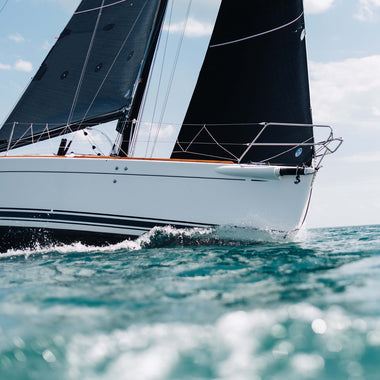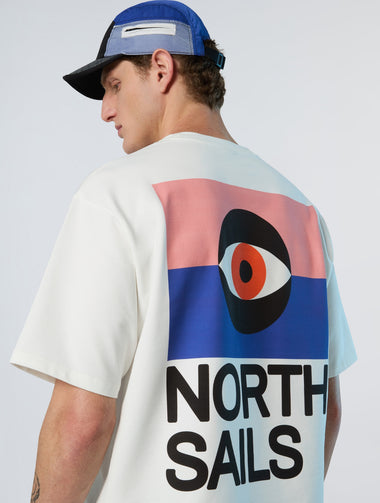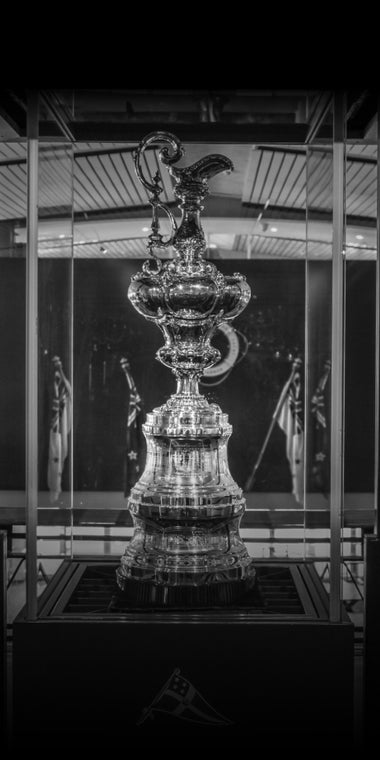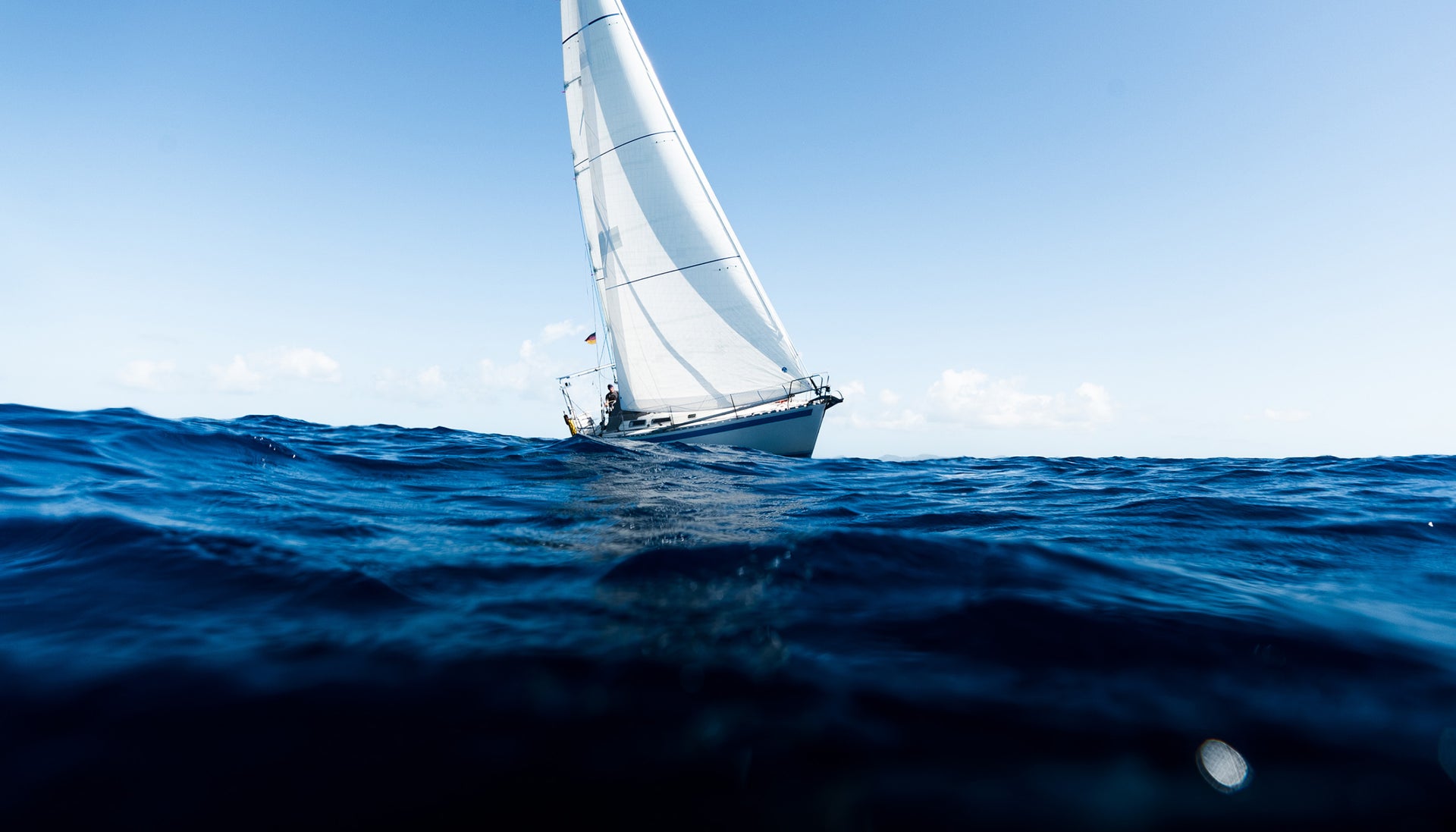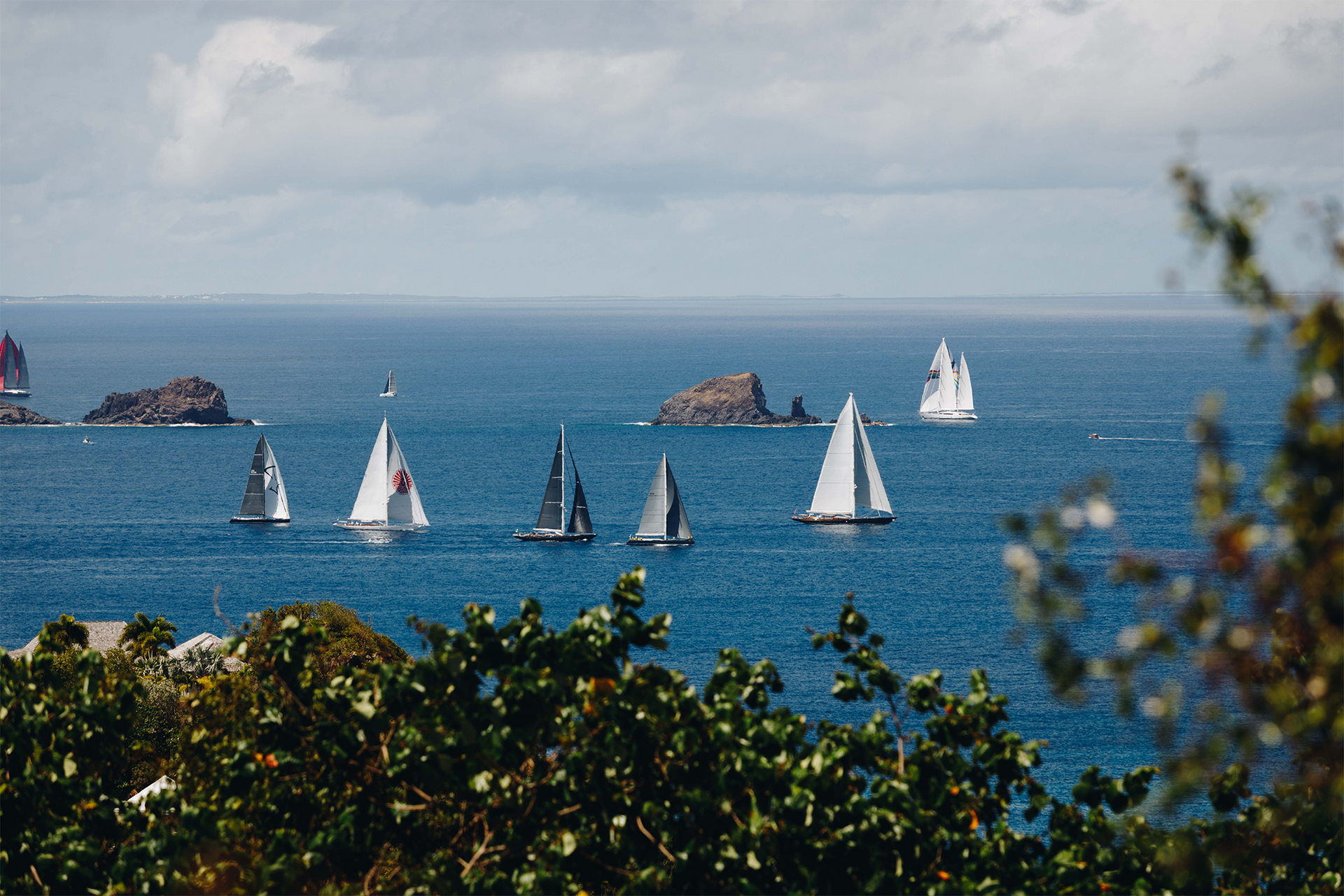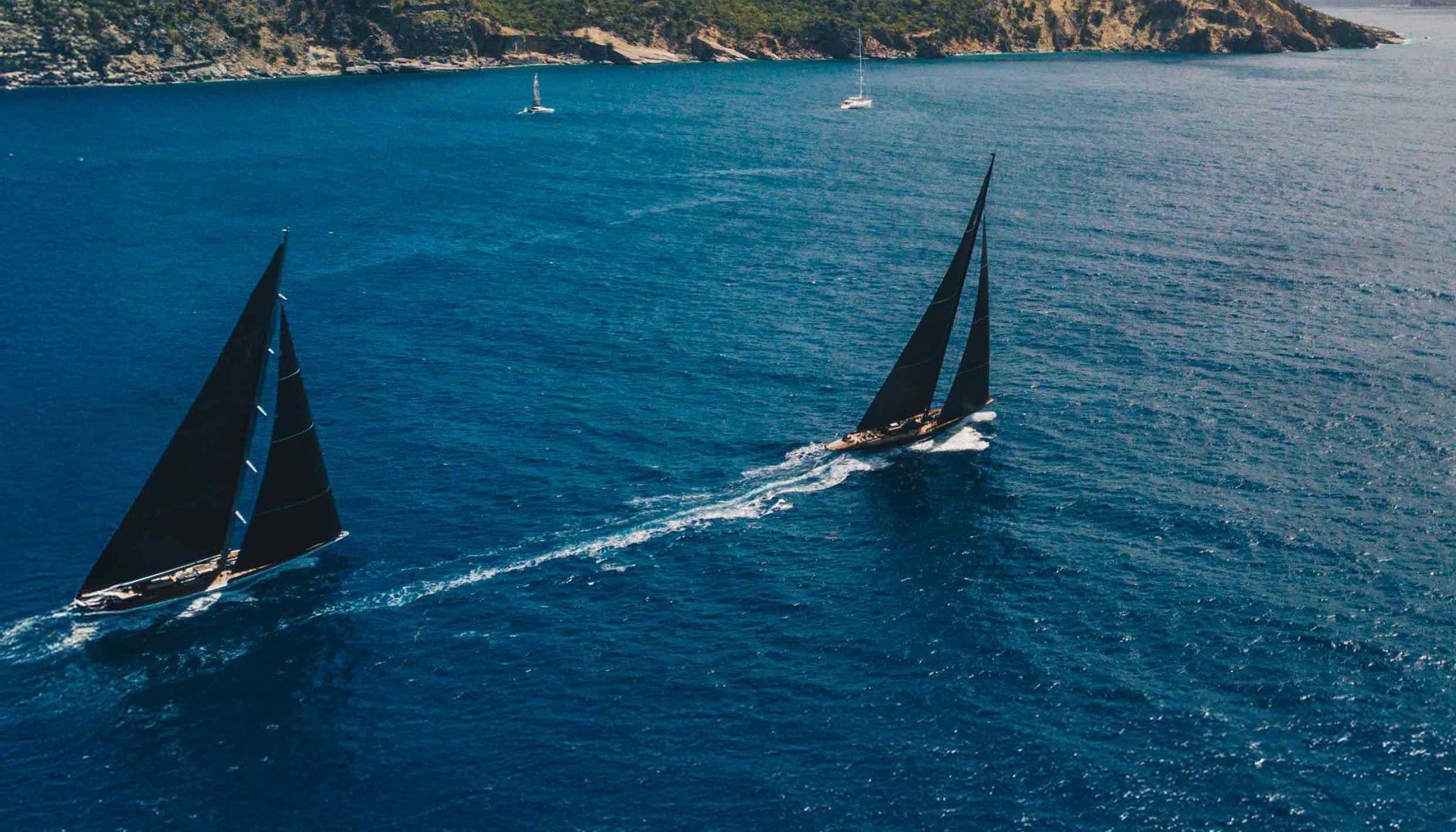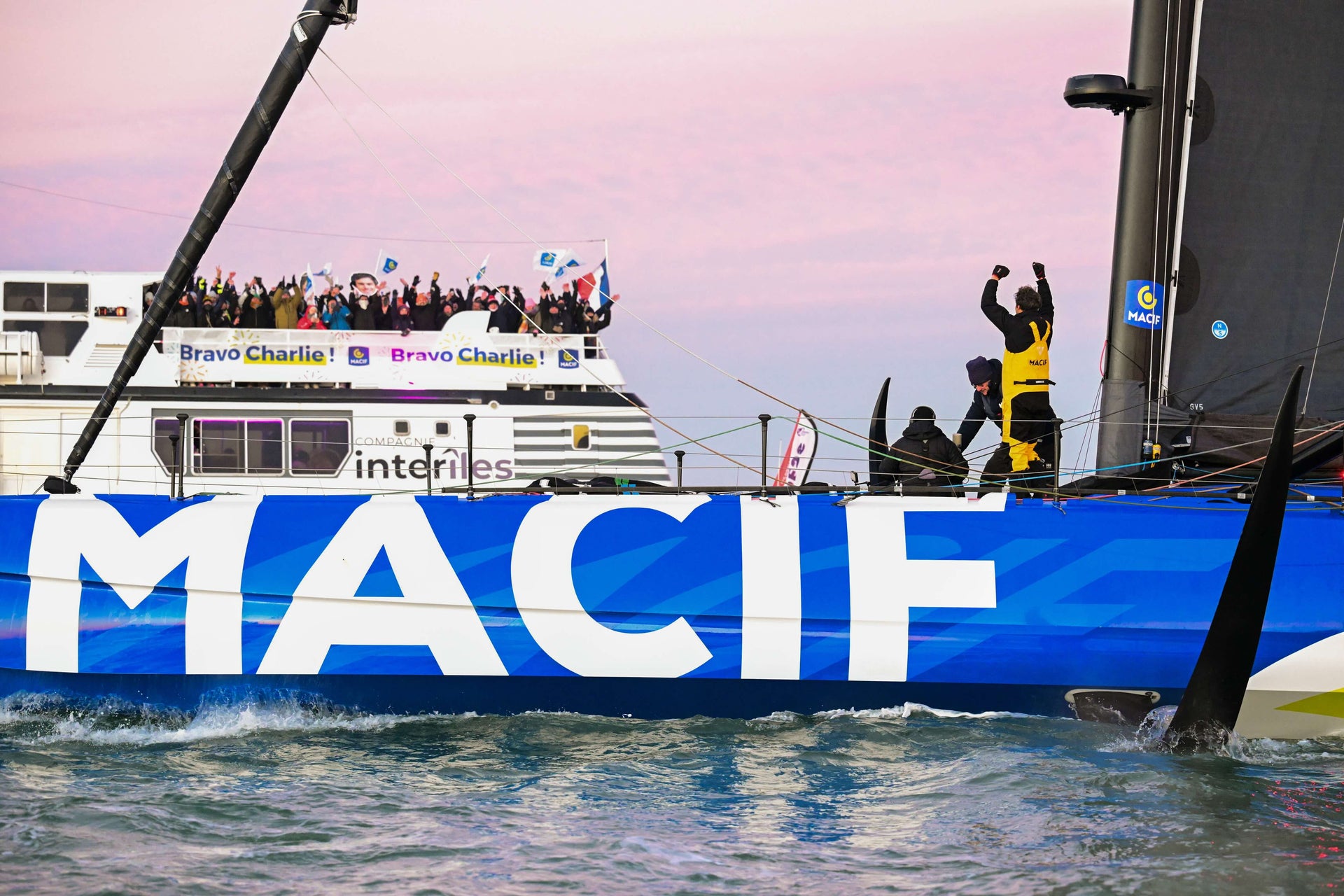DOUBLEHANDED TIPS FROM ARMEL LE CLÉAC'H & CLARISSE CRÉMER
DOUBLEHANDED TIPS FROM ARMEL LE CLÉAC’H & CLARISSE CRÉMER
Masterclass Takeaways from the Live Webinar with Ken Read
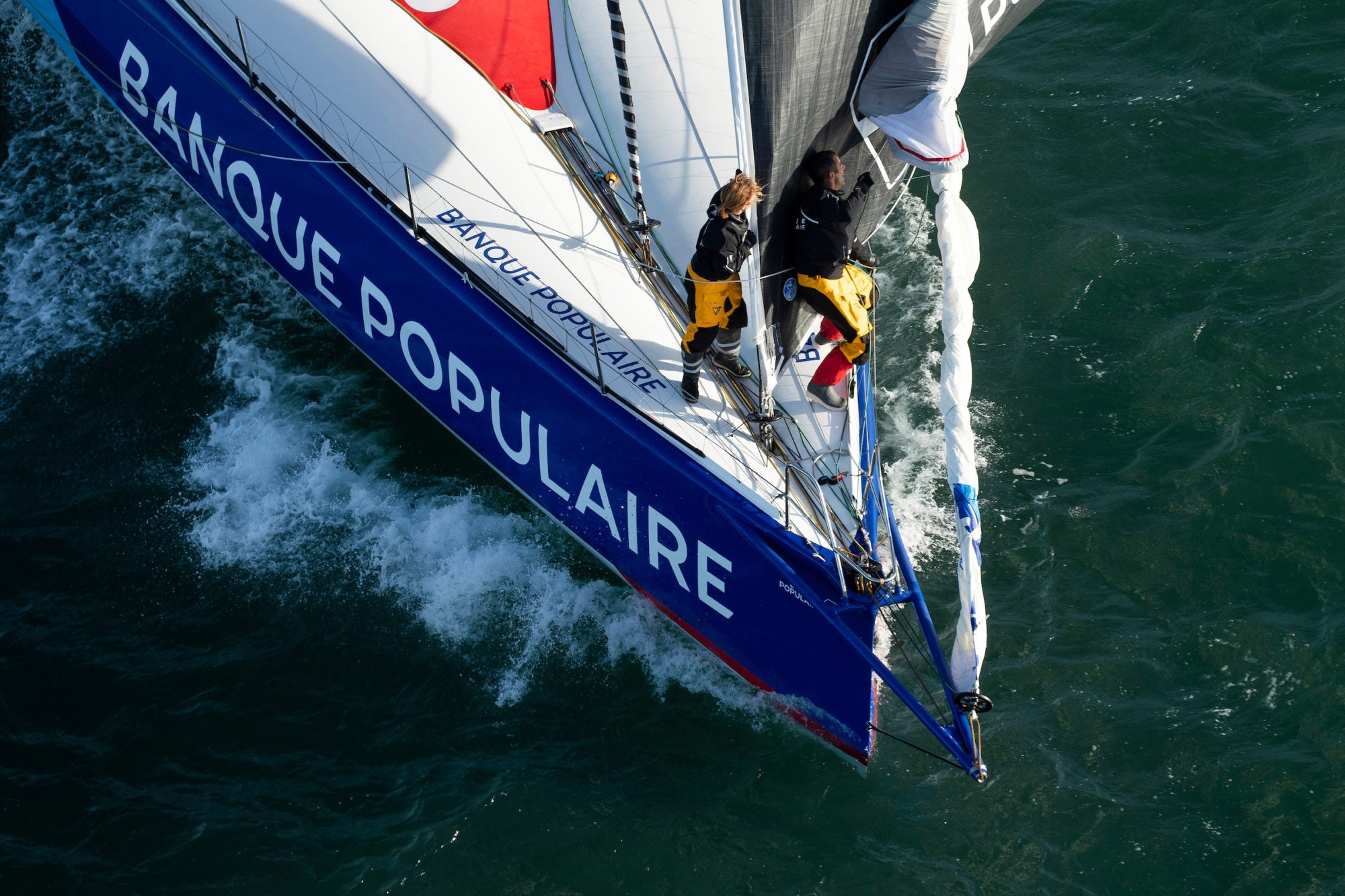
North Sails were lucky to have the two doublehanded experts Armel Le Cléac’h & Clarisse Crémer host a webinar for an in-depth masterclass.
Best known as a singlehanded sailor with notable race wins in the Solitaire du Figaro, Transat AG2R and the singlehanded Transat, Le Cléac’h’s accolades also include a record-breaking finish in the 2016-17 Vendée Globe. Crémer is an up and coming sailor, making a name for herself during the Transat 6.50 in 2017, where she finished second in her class.
Did your partnership come naturally?
Le Cléac’h and Crémer began their partnership in 2019 when Crémer was scouted to join the Banque Populaire team, racing the IMOCA platform with Le Cléac’h. The team’s training gave Crémer the confidence and experience to pursue a singlehanded campaign for the 2020 Vendée Globe later this year. Although sailing with the best-brought pressure, Crémer explains that “Armel is confident, calm and explains everything well on these kinds of boats.’’ Together, the French duo finished sixth overall and took the top spot in both the non-foiling and mixed crew classes in last years’ Transat Jacques Vabre (TJV).
How did you go about choosing the right teammate?
Define your roles at the start. Even though the responsibilities may change over time, it is important to have defined roles onboard, with the most important being safety. Both team members must know where everything is onboard and what to do if there is a problem. During the TJV, Le Cléac’h was responsible for weather, strategy, and route planning, but as Crémer gained experience on the boat, her role evolved as her confidence developed, to the point where she was able to make decisions and changes whilst sailing.
Know how to do every job onboard. Try changing roles in training so you understand and realize what your teammate is doing.
Choosing the right teammate. Time on the water training helps you get to know people better, so sailing and training together lots before doing a high-pressured race. There are three important factors in finding the right teammate: having the right personality to be able to work together, physical ability to handle the job, and mental state to know what to do and figure out how to solve problems.
Understand your boat. To get into offshore racing, you can’t just be a sailor anymore. You’ve got to be a sailmaker, boat builder, electrician, rigger, as well as being a trimmer, navigator, and helmsman!
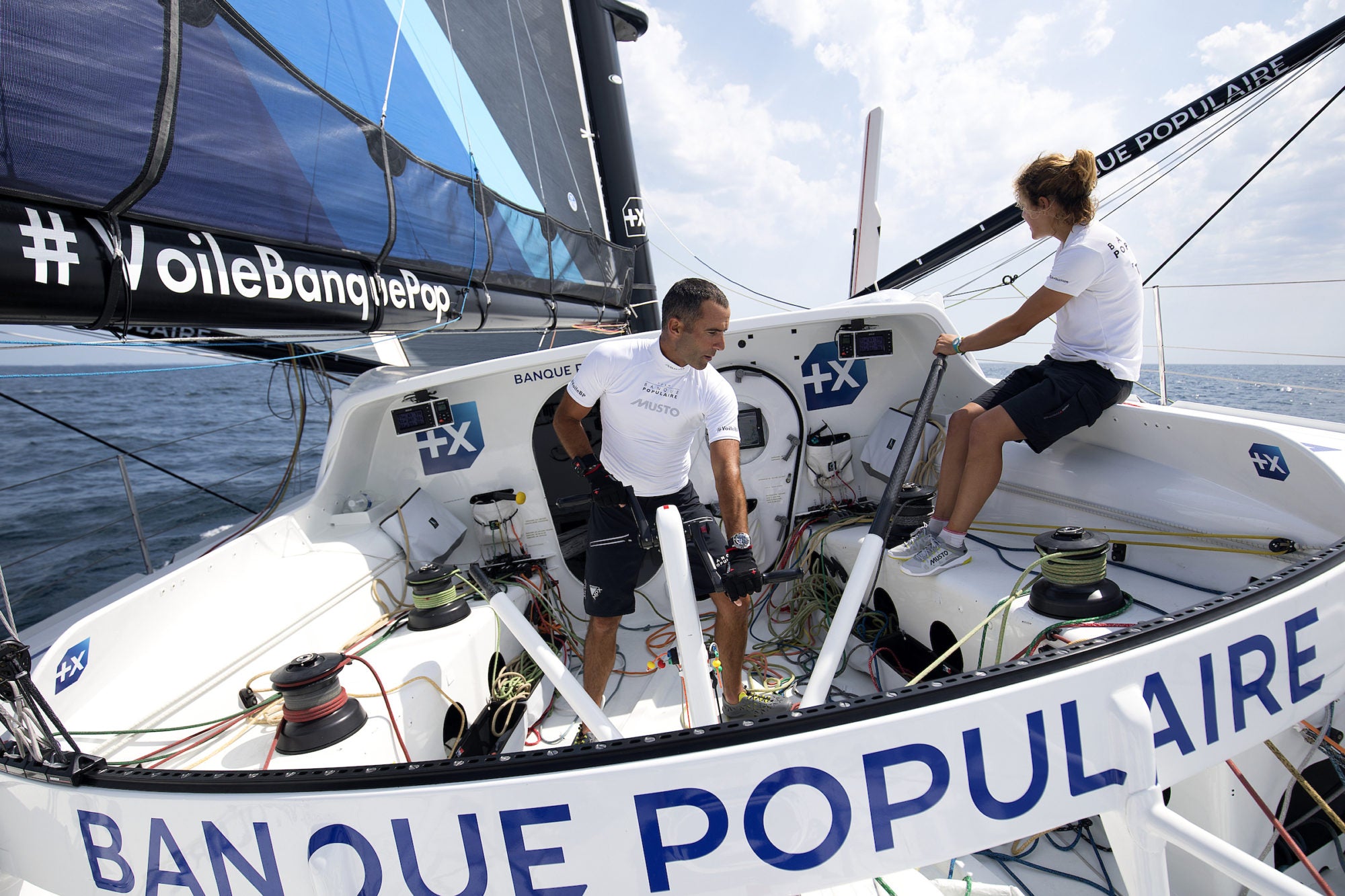
Why Shorthanded Sailing?
Shorthanded sailing is an important part of France’s culture, sparked in 1964 by the French legend and offshore sailor, Eric Tabarly. Tabarly made a mark in history when he won the singlehanded Transat, arriving into Newport, Rhode Island, two days earlier than the next sailor. He went on to win future offshore races and became an inspiration for France.
France now provides some great racing platforms for singlehanded sailing, which is how Le Cléac’h got involved. When asked if single and doublehanded sailing are similar, he advised: “Doublehanded sailing is like sailing solo, for two. To perform well in doublehanded sailing, you almost need to be two-single handed sailors.’’
Crémer got hooked on the thought of adventure, completing the singlehanded Mini Transat Race as her first offshore race. “Shorthanded sailing is a good opportunity to do more strategic roles and learn as much as possible, especially when sailing alone,’’ she says. “It gives you the chance to do everything and make all the decisions – the best way to learn!’’
“Doublehanded sailing is like sailing solo, for two. To perform well in doublehanded sailing, you almost need to be two-single handed sailors.’’
Clarisse Crémer: A Women on the Rise in the Sailing World
As well as being important for women sailors in general, role models are vital for new, young female sailors coming up through the sport.
Crémer started sailing as a hobby when she was young on holidays and began racing at the age of 16, discovering the world of offshore racing in 2010 through University. Saying yes to every opportunity led to her decision in 2015 to take part in the Mini Transat, marking the time when she became fully committed to the sport. “I always loved sports, competition, and the sea in general. I was especially driven for the adventure of the Mini Transat. This race gave me my love for offshore sailing.’’
“Shorthanded sailing is a good opportunity to do more strategic roles and learn as much as possible, especially when sailing alone.’’
Up next for Crémer is another exciting opportunity to be part of the Banque Populaire team for the 2020 Vendée Globe, leaving from Les Sables d’Olonne on the 8th November 2020 for a non-stop race around the world.
Her advice?
“Progressing and reaching the stage where you feel useful (and not just a weight moving from one side to the other), can be hard on a crewed boat.” This is why singlehanded sailing appealed to Crémer, as it provided more opportunity for tactical decisions and driving.
“Have confidence if you want people to trust and choose you for different positions on the boat. Otherwise, only results and other experiences will allow you to be legitimate. The more I practice, the more my confidence grows which is the only answer to my doubts. One thing I did learn is that you can be confident without being loud!’’
Missed the live webinar with Ken Read? Catch up now.


